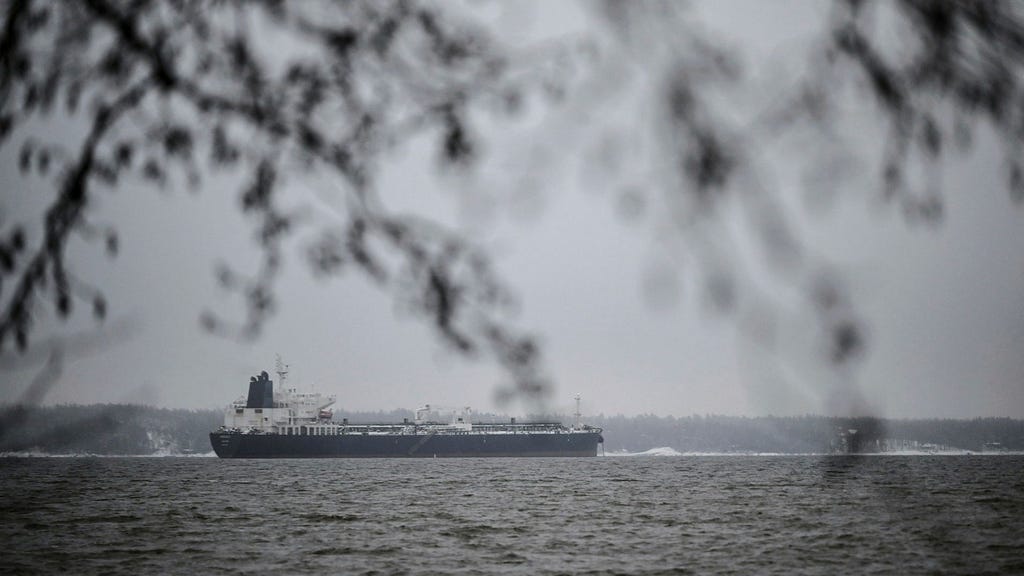Denmark faces a significant challenge in controlling the so-called ”shadow fleet” operating within its straits, primarily the Øresund, Great Belt, and Little Belt. This ”shadow fleet” consists of vessels, often linked to sanctioned entities like Russia and Iran, that engage in illicit activities such as circumventing sanctions by transferring cargo at sea or engaging in other clandestine operations. Addressing this problem requires a nuanced understanding of international maritime law, the limitations of Danish jurisdiction, and the political ramifications of assertive action. While the issue appears complex, Professor Kristina Siig, a leading expert in maritime law, argues that Denmark already possesses the necessary legal tools to effectively combat these activities; however, they remain largely untapped due to a combination of political hesitancy and a lack of comprehensive enforcement strategies.
Denmark’s territorial waters, extending 12 nautical miles from its baseline, provide a clear zone of control where Danish law reigns supreme. Within these waters, Denmark has the authority to board, inspect, and detain vessels suspected of violating sanctions or engaging in other illegal activities. However, the straits themselves present a more complex jurisdictional landscape. The Øresund, for example, involves overlapping territorial waters with Sweden, necessitating coordinated action between the two countries. The Great Belt and Little Belt, while largely within Danish territorial waters, are subject to the right of transit passage, a crucial principle of international law that guarantees freedom of navigation through straits used for international navigation. This right allows vessels, including those potentially part of the ”shadow fleet,” to pass through these straits expeditiously and without interference, provided their passage is continuous and expeditious and does not pose a threat to the peace, good order, or security of the coastal state.
This right of transit passage does not, however, provide carte blanche for illicit activities. Professor Siig emphasizes that the right does not extend to activities that violate international law, including sanctions evasion. Denmark, therefore, retains the right to take action against vessels engaged in such activities, even within the context of transit passage. The challenge lies in effectively identifying vessels suspected of illicit behavior and gathering sufficient evidence to justify intervention. This requires proactive monitoring, intelligence sharing with international partners, and potentially increased patrol presence in the straits. Furthermore, distinguishing legitimate transit passage from activities that exploit this right for illicit purposes requires careful legal interpretation and operational judgment.
The legal framework for intervention is robust. UN Security Council resolutions related to sanctions regimes provide a strong international legal basis for action against vessels violating these sanctions. Denmark, as a member state, is obligated to implement these resolutions. Furthermore, domestic legislation can be enacted to strengthen enforcement capabilities and provide clear legal authority for Danish authorities to act. However, translating legal authority into effective action requires political will and a commitment to allocating the necessary resources for surveillance, interception, and investigation. This might include investing in advanced surveillance technologies, increasing the capacity of the Danish Maritime Authority and other relevant agencies, and strengthening cooperation with international partners, particularly those with experience in combating sanctions evasion.
While legal measures are essential, addressing the ”shadow fleet” problem also requires a broader strategic approach. This includes strengthening international cooperation to share information and coordinate actions against these vessels. Working with regional partners like Sweden, as well as with international organizations like the European Union and NATO, can enhance Denmark’s ability to monitor and intercept suspicious vessels. Furthermore, diplomatic pressure on states whose flagged vessels are involved in sanctions evasion can be an effective tool. This pressure can take the form of bilateral discussions, raising concerns in international fora, and potentially even imposing sanctions on shipping companies or flag states that consistently fail to address the issue.
Successfully combating the ”shadow fleet” requires a multi-faceted approach that combines robust legal action with proactive surveillance, international cooperation, and diplomatic pressure. Professor Siig’s assertion that Denmark already possesses the necessary legal tools underscores the importance of political will and strategic thinking in addressing this challenge. By effectively utilizing existing legal frameworks, strengthening enforcement capabilities, and collaborating with international partners, Denmark can significantly curtail the activities of the ”shadow fleet” and uphold the integrity of international sanctions regimes, while simultaneously respecting the principles of freedom of navigation enshrined in international law. The challenge lies not in the absence of legal tools, but in the effective and assertive implementation of those tools, combined with a proactive and comprehensive strategy that addresses the multifaceted nature of this maritime security threat.














